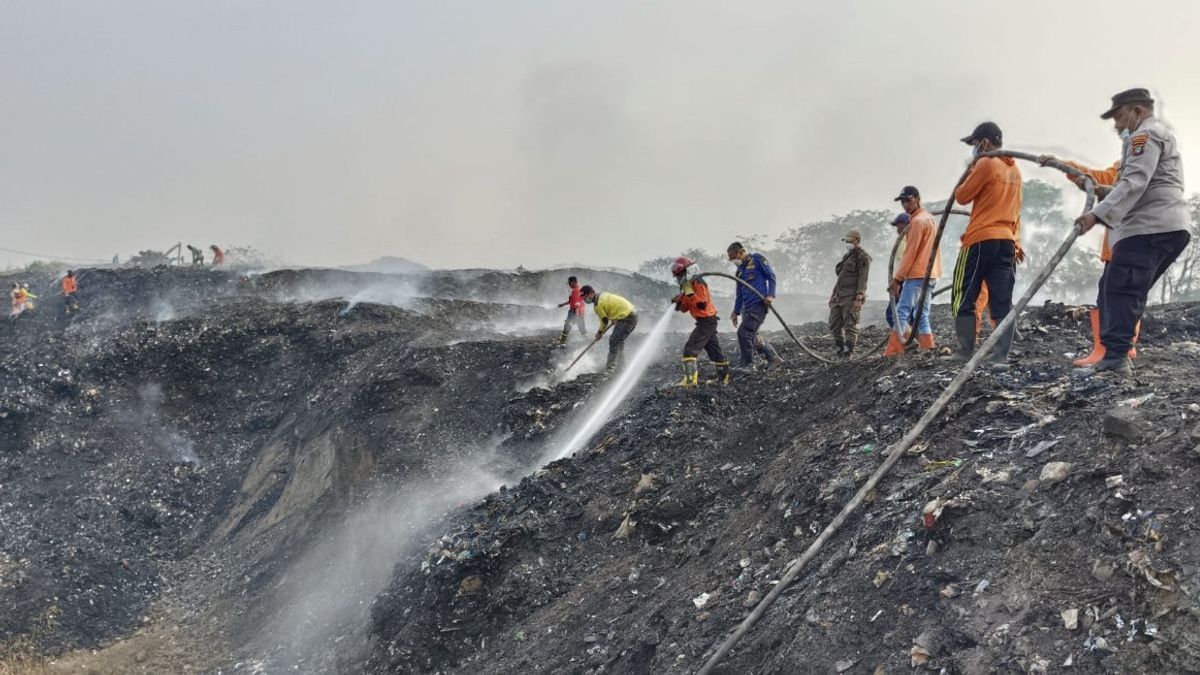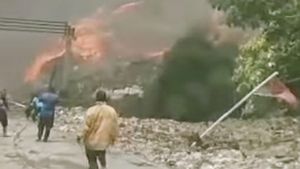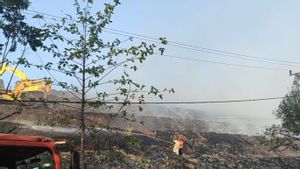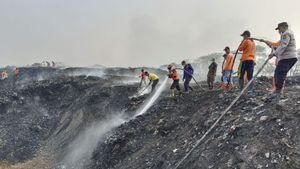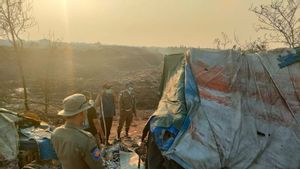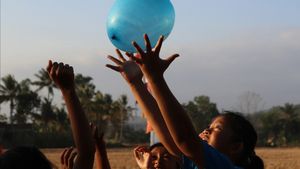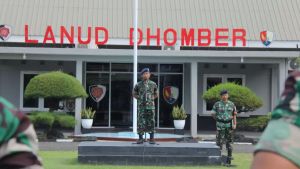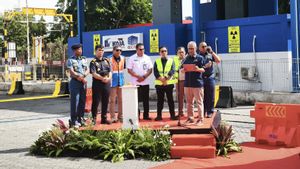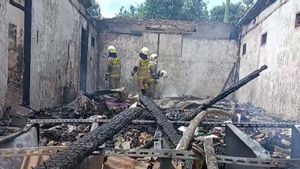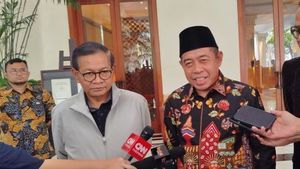JAKARTA - Commission IV of the DPR urges the Government to change the waste management model to make it more efficient so that the accumulation of waste can be more controlled. Moreover, the rise of fires in Waste Disposal Sites (TPS) and Final Disposal Sites (TPA), mainly due to extreme hot weather.
"The criticism of the TPS fire in Indonesia throughout the dry season is a sign that the waste management model based on collecting, transporting and throwing away is no longer applicable," said member of Commission IV of the DPR, Daniel Johan, Monday, October 31.
Most recently, the Bantargebang Integrated Waste Management Site (TPST) in Bekasi, West Java caught fire on Sunday (29/10). The fire occurred in Zone II Jambore which has an area of about 17.7 hectares. The trigger is suspected to have caused a hot weather to burn garbage containing methane gas.
The TPA fire also occurred in West Bandung Regency (KBB), where the Sarimukti TPA caught fire on Saturday (19/8). It is known that the initial cause of the fire was due to cigarette butts that were thrown away carelessly. However, other indications suggest an accumulation of methane gas that exacerbated the incident.
Previously, a fire had also occurred in TPA Suwung, Denpasar, Bali, for almost more than 2 weeks. Then the TPA Madung, Tabanan, Bali also experienced a fire even though currently the activity had been going on normally.
It is known that the people around the Rawa Cat TPA, Tangerang, Banten, have just begun to return from their refuge after the fire incident at the TPA. Recently, TPA fires have also occurred in West Bandung, Solo, and Semarang.
Reflecting on the incident, Daniel assessed that the fires at TPS and TPA were one of the peaks of the iceberg from the long-term systematic neglect that had been carried out by all levels of government.
اقرأ أيضا:
"Most TPAs in Indonesia use the exhaust transport system without the sorting process. I think this open dumping model is very irrelevant considering that there have been many fire incidents due to the absence of a waste sorting process," he explained.
"In addition, we are currently facing climate change that has made the weather hot more than the previous year, if some chemicals accumulated from waste produce methane gas that is flammable so that fires can occur," added Daniel.
Furthermore, the Commission in the DPR, which focuses on environmental and agricultural affairs, reminded about decentralized waste management whose rules are contained in Law No. 18 of 2008. Daniel said that decentralized waste management by applying the principles of reducing, recycling and reusing or 3R (reduce, reuse, and recycle) must be socialized to the public appropriately.
"This 3R principle must be applied to the smallest scope of society, not by collecting garbage like what is now happening," he said.
Daniel said, one of the important steps in improving waste management in Indonesia is to prioritize waste sorting at the source, namely in the household. The government is encouraged to further promote educational programs regarding waste sorting before being disposed of to the public.
"The education program and public awareness need to be improved to ensure that the resulting waste is divided into the right category, such as organic, non-organic, and dangerous waste," said Daniel.
To overcome the problem of worsening waste management, Daniel also encouraged the Government to invest in integrated waste management facilities that include recycling, compost, and processing of hazardous waste.
According to Daniel, this integrated model not only helps reduce the amount of waste that ends up at the TPA, but also creates economic opportunities through recycling and wise waste treatment.
"The processing of waste that prioritizes results for the community, for example, can produce organic fertilizers that are very useful for farmers. This will also be a step of support from the Government, when farmers begin to shout difficulty with fertilizer," he said.
Daniel added that waste processing into organic fertilizer will also expand positive impacts in various aspects. This includes supporting environmental, agricultural, and economic improvements.
The English, Chinese, Japanese, Arabic, and French versions are automatically generated by the AI. So there may still be inaccuracies in translating, please always see Indonesian as our main language. (system supported by DigitalSiber.id)
